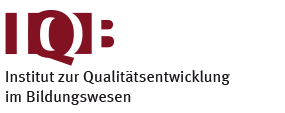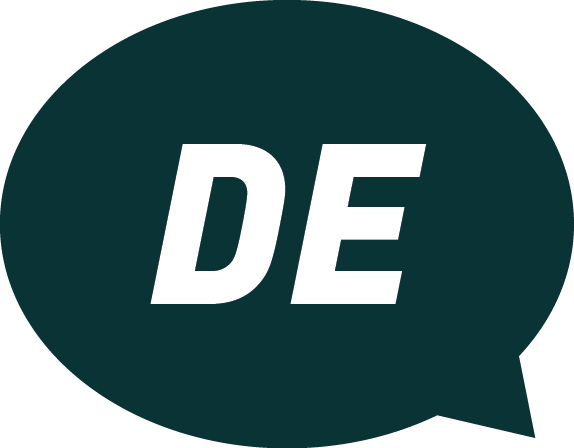Language Education and Development in Kindergarten in North Rhine-Westphalia (SEIKA-NRW)
Table of contents
> Link to application form (Scientific Use Files)
| Data Set Published on | 14.01.2020 |
|---|---|
| Current Version Available Since | 14.01.2020 |
| Survey Period | 2016, 2017 |
| Sample | Kindergarten Children (N=4,010); Kindergarten Groups (N=192); Kindergarten (N=95) |
| Survey Unit | Educational Staff Kindergarten Children |
| Measured Competencies | Vocabulary, Nonverbal Intelligence, Phonological Awareness, Expressive Morphological Skills |
| Region | North Rhine-Westphalia |
| Principal Investigators | Kalicki, Prof. Dr. Bernhard Leyendecker, Prof. Dr. Birgit |
| Data Producers | Deutsches Jugendinstitut (DJI) Ruhr-Universität Bochum (RUB) |
| Funded by | Ministry for Children, Family, Refugees and Integration of the Federal State of NRW |
| Link | https://cfr-psy.ruhr-uni-bochum.de/seika/ |
| Related Studies | SEIKA-NRW Längschnitt (DOI: 10.5159/IQB_SEIKA-NRW_LS_v1) |
| Suggested Citation | Agache, A., Bihler, L.-M., Willard, J. & Leyendecker, B. (2020). Sprachbildung und -entwicklung im Kita-Alltag in Nordrhein-Westfalen (SEIKA-NRW) [Language Education and Development in Kindergarten in North Rhine-Westphalia (SEIKA-NRW)] (Version 1) [Data set]. Berlin: IQB – Institut zur Qualitätsentwicklung im Bildungswesen. http://doi.org/10.5159/IQB_SEIKA-NRW_v1 |
| Restriction Notice | There are no specific data restrictions. |
Project description
The overarching objectives of the SEIKA-NRW project were to evaluate the efforts made in NRW to implement language education integrated into everyday life in the elementary sector, to assess the need for language support in the elementary sector and to research the effectiveness of early language education. Study partners were the German Youth Institute (DJI) in Munich together with the TU Dortmund University and the Ruhr-Universität Bochum (RUB). The RUB assumed responsibility for module B. The aim was to determine the need for language support in the elementary sector with a cross-sectional sample of children aged between 2.5 and 6 years. Approximately 2,300 kindergarten children from 192 kindergarten groups were tested. The data is supplemented by information on the facilities, the respective kindergarten groups and their quality of care. Of particular relevance was the question of whether two financial support lines made available by the state of North Rhine-Westphalia from 2014 onwards had a positive impact on pedagogical care in the kindergartens and on the development of children's language skills. A propensity score matching procedure was applied to ensure comparability of kindergartens from different funding lines (control group, support line Förderlinie Sprachförderkita und Förderlinie plusKITA with additional language support) on as many features as possible. (IQB)
Blank data sets
For a first overview of the data set and its variables, dummy data sets containing the variables used and the value labels relating to them are provided for download here.
Literature
Selected literature is listed  here (as of July 2021).
here (as of July 2021).
2021
Kohl, K., Bihler, L.-M., Agache, A., Leyendecker, B. & Willard, J. A. 2021 Do Peers Matter? Peer Effects on Young Children's Vocabulary Gains in German Classrooms. Ruhr-Universität Bochum, Germany. https://doi.org/10.1037/edu0000522
2020
Agache, A., Bihler, L.-M., Willard, J., Leyendecker, B. & Ruhr-Universität Bochum. (2020). Sprachbildung und -entwicklung im Kita-Alltag in Nordrhein-Westfalen (SEIKA-NRW) (Version 1) [Datensatz]. Berlin: IQB - Institut zur Qualitätsentwicklung im Bildungswesen. https://doi.org/10.5159/IQB_SEIKA-NRW_v1
Kohl, K., Bihler, L.-M., Willard, J. A., Agache, A. & Leyendecker, B. (2020). Linking Quantity and Quality of Early Childhood Education and Care to Children’s Socio-Emotional Adjustment: A German Cross-Sectional Study. Early Education and Development, 31(2), 177–199. https://doi.org/10.1080/10409289.2019.1650543
2019
Agache, A., Bihler, L.-M., Kohl, K., Willard, J. & Leyendecker, B. (2019). Introducing the network analysis approach to unpack the multi-causal system of early child-care quality - Unveröffentlichtes Manuskript. Bochum: Fakultät für Psychologie, Ruhr-Universität Bochum.
Blatter, K., Groth, K., Eichmann, V. & Stolarova, M. (2019). Sprachbildung im Elementarbereich in Nordrhein-Westfalen: Ein Vergleich von Kitas mit unterschiedlicher finanzieller Förderung. In K. Blatter, K. Groth & M. Hasselhorn (Hrsg.), Evidenzbasierte Überprüfung von Sprachförderkonzepten im Elementarbereich (Edition ZfE, v.6, S. 153–181). Wiesbaden: Springer VS. https://doi.org/10.1007/978-3-658-26438-3_7
Kohl, K., Willard, J. A., Agache, A., Bihler, L.-M. & Leyendecker, B. (2019). Classroom Quality, Classroom Composition, and Age at Entry: Experiences in Early Childhood Education and Care and Single and Dual Language Learners’ German Vocabulary. AERA Open, 5(1). https://doi.org/10.1177/2332858419832513
2018
Bihler, L.-M., Agache, A., Kohl, K., Willard, J. A. & Leyendecker, B. (2018). Factor Analysis of the Classroom Assessment Scoring System Replicates the Three Domain Structure and Reveals no Support for the Bifactor Model in German Preschools. Frontiers in Psychology, 9, 1232. https://doi.org/10.3389/fpsyg.2018.01232
Bihler, L.-M., Agache, A., Schneller, K., Willard, J. A. & Leyendecker, B. (2018). Expressive Morphological Skills of Dual Language Learning and Monolingual German Children: Exploring Links to Duration of Preschool Attendance, Classroom Quality, and Classroom Composition. Frontiers in Psychology, 9, 888. https://doi.org/10.3389/fpsyg.2018.00888
Buchmüller, T., Lembcke, H., Busch, J., Kumsta, R. & Leyendecker, B. (2018). Exploring Mental Health Status and Syndrome Patterns Among Young Refugee Children in Germany. Frontiers in Psychiatry, 9, 212. https://doi.org/10.3389/fpsyt.2018.00212

